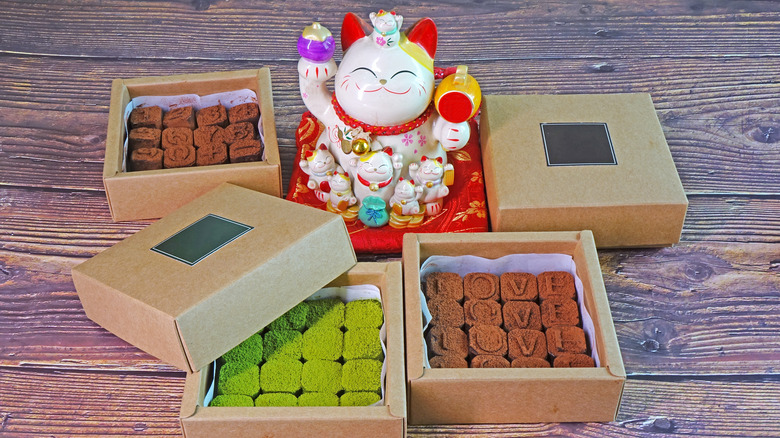How Japan Celebrates Valentines Day
Every February 14, most Americans can expect cards, chocolates, and flowers from their special someone (via American English). According to Real Simple, Valentine's Day has Ancient Roman origins but began to be commercialized as a holiday in the 19th century. Although traditionally it can be seen as a holiday exclusively for those with romantic partners, The Atlantic reports that in recent years, Valentine's Day in the U.S. has changed to include everyone.
Hisgo explains that, in Japan, the holiday is celebrated somewhat differently than in other countries. In the western world, it's often expected (at least among many heterosexual couples) that a woman will be splurged on and taken out for Valentine's Day. As Japan Rail Pass puts it, men do the "heavy-lifting" for the holiday. However, things are done differently in Japan. In fact, the roles are reversed and men take a step back for Valentine's Day, at least for a short while.
In Japan, Women give men chocolate
According to hisgo, in Japan, women are the primary gift-givers on Valentine's Day with the gift of choice being none other than chocolate. The chocolate, however, does hold some significance. Japan Rail Pass writes that the type of chocolate gifted "depends on the relationship" they have with the man. For example, giri-choco, is given to male friends or colleagues as a sign of platonic appreciation. Honmei-choco is for romantic partners. Japan Web Magazine states that it can also be given to someone as a confession of amorous feelings. Of course, there are also Valentine's Day chocolates for female friends (tomo-choco) and for the buyer themselves (jibun-choco).
Per Vogue Australia, men will get to return the favor to the women who gifted them chocolate on March 14, otherwise known as White Day. Celebrated in Japan, Taiwan, and South Korea, Forbes calls it the "male counterpart to Valentine's Day." Men are encouraged to give sweets, stationery, or jewelry (via the BBC). If they decide not to give back, it's considered to be a "disdainful spurn." Nonetheless, White Day's popularity has declined in recent years due to changing beliefs about gender roles and a decrease in income.

